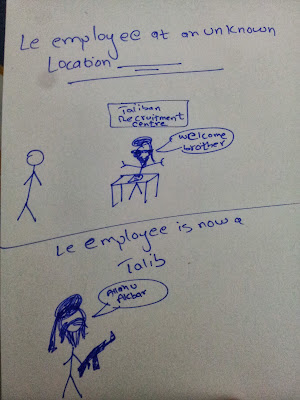Media
in Pakistan has played a great role in bringing out issues that
otherwise would have remained hidden to the public eye. Many a poor and
disadvantaged have found donors to help them out just because of reports
published and broadcasted by our media.
That being said, an important consideration that is often overlooked is, confidentiality.
 Should I put this person’s name in my report who is
suffering from illness which might cause him embarrassment in his public
life? Should I identify this person in my article which might make him
vulnerable to
slurs? These are the questions which any responsible journalist must ask
before publishing reports on issues relating to gender, sexuality,
health and abuse. In Pakistan specifically, it is essential for a
journalist to guard a victim/patient/gender’s identity
due to the fact that we as a society still live in the seventh century
when it comes to recognizing LGBT
rights, stigmatizing rape victims and gossiping about a person’s
illness. Can a person with a sexual disease
ever come out without being judged and comments passed on him/her
because of imagined sexual indulgences? Can a rape victim come out in
the open without being told that the DNA evidence in her/his case is
unacceptable according to Council
of Islamic Ideology? In a country where 60% of the people surveyed, would not like to be friends with a transgender,
a journalist must make his/her top priority
not to reveal names when doing reports on these kind of stories. The
5-year old girl raped in Lahore should never have been named in the
first place, but ratings and sensationalism continue to have a vice like
grip on our media.
Should I put this person’s name in my report who is
suffering from illness which might cause him embarrassment in his public
life? Should I identify this person in my article which might make him
vulnerable to
slurs? These are the questions which any responsible journalist must ask
before publishing reports on issues relating to gender, sexuality,
health and abuse. In Pakistan specifically, it is essential for a
journalist to guard a victim/patient/gender’s identity
due to the fact that we as a society still live in the seventh century
when it comes to recognizing LGBT
rights, stigmatizing rape victims and gossiping about a person’s
illness. Can a person with a sexual disease
ever come out without being judged and comments passed on him/her
because of imagined sexual indulgences? Can a rape victim come out in
the open without being told that the DNA evidence in her/his case is
unacceptable according to Council
of Islamic Ideology? In a country where 60% of the people surveyed, would not like to be friends with a transgender,
a journalist must make his/her top priority
not to reveal names when doing reports on these kind of stories. The
5-year old girl raped in Lahore should never have been named in the
first place, but ratings and sensationalism continue to have a vice like
grip on our media.
Recently I came across a story published on ET
regarding a girl in
Abbottabad diagnosed with “ambiguous genitalia”- a birth defect which
effects sexual growth in a person. Although it is not a disease but due
to the birth defect it is hard to ascertain the sex of a person based on
outside appearance of genitalia. The girl’s
father is poor and cannot afford to pay for the surgery (costing RS.200,
000) and five medical tests (costing Rs. 35,000) that would be required
to fully transform her into a girl.
It would be a good thing if, due to the report, that
girl’s father gets the donations so that the she can receive proper
medical attention. That’s the good part. But, what about the behavior of
the society after
her identity has been revealed? Who can guarantee that she wouldn’t be a
victim to slurs because of her medical condition? Wouldn’t this report
make her vulnerable to ridicule by her class mates? Neighbors? Did the
reporter who filed the story think about the
impact of this story?
Industrialist and social activist Majyd Aziz remarked:
“Pragmatic way would have been to identify the kid with
an initial, request well known person to spearhead collections. People
tend to remember negative aspects. Moreover, child would be ridiculed by
class-fellows.
Family may be mocked too”.
Writer and poet Sarah B Gillani called this “absolutely wrong”.
Hence I call upon the concerned editorial staff at ET to
remove the child’s name from the story and kindly enable the practice of
protecting the confidentiality of such cases in the future. While let
us all hope
that in the future that no Pakistani is judged based on gender, sexual
orientation and religious beliefs.





